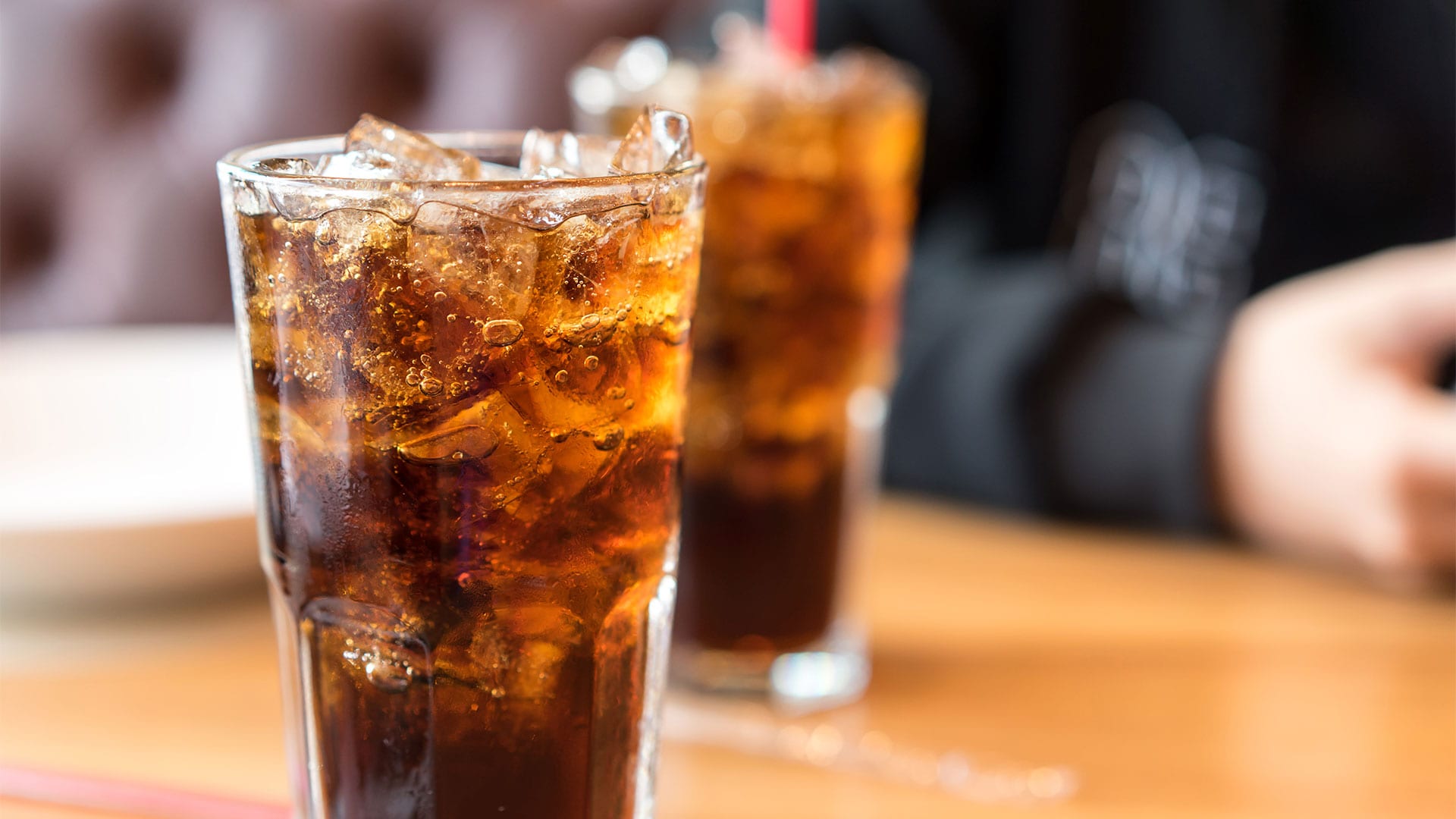Across the country soft drinks go by many names: soda, coke, cola, and pop. No matter what moniker you use for these sweet beverages, there’s no denying the effects that soft drinks have on our teeth.
Soft drinks are the most-consumed beverages in the country, according to the Missouri Dental Association. The average American consumes 44.7 gallons of carbonated soft drinks each year.
Why is soda so bad for your smile?
Keep reading to find out how your favorite beverages may be harming your teeth.
Drinking Soda Is Like Drinking Sugar
As we drink soda, sports drinks, and juices, we often forget that they add both calories and a sizable amount of sugar to our diets. In fact, nearly 50 percent of the added sugars we consume come from these types of drinks.
The American Heart Association recommends that men have no more than 36 grams of added sugar a day and women consume no more than 25 grams of added sugar daily. One can or bottle of many classic sodas contains added sugars, like high fructose corn syrup or sucrose, in amounts that exceed these suggestions.
One 12-ounce Coca-Cola contains 39 grams of added sugars, while a 12-ounce Pepsi has 41 grams of added sugars. The same size can of Mountain Dew contains 46 grams of added sugars.
The bigger the vessel, the more calories and sugars you consume. Popular sizes, like a 32-ounce fountain drink, will have you consuming two to three times the daily recommended amount of added sugars—and that’s just from your soda.
Drinking these beverages can have adverse effects on our weight, our heart, and our teeth.
Soda & Tooth Decay
How does soda affect our teeth? The sugars in soda and other sweetened drinks are a welcomed treat for bacteria in our mouths. These bacteria feed on sugar and produce acids that weaken tooth enamel.
If bacteria need sugar to make acids, what about diet sodas or zero-sugar sports drinks? Less sugar should mean less acid, right?
Regular sodas and sports drinks often contain acids themselves in addition to their many sugars. Ingredients like phosphoric acid and citric acid make up many of these beverages, including low sugar soft drinks.
Acidity Levels of Popular Drinks
As part of its Stop the Pop campaign, the Missouri Dental Association published a list of drinks with varying levels of acidity. Any pH level less than 7.00 is acidic. The lower the pH level is, the more acidic the beverage is.
Drinks like Red Bull (3.10 pH), Dr. Pepper (2.92 pH), Gatorade (2.83 pH), Coca-Cola (2.30 pH), and Monster Energy (1.50 pH) fall far below the neutral pH level, marking them very acidic.
Too many sugary, acidic foods and sodas can cause drastic enamel decay. Enamel erosion is one of the effects of diet soda, too. Diet Pepsi and Diet Coke are just as acidic as regular sodas at 2.77 pH and 2.70 pH, respectively.
Soda In Moderation
While there are many benefits to not drinking soda, you don’t have to give up soda altogether. If you enjoy soda, try to drink it in moderation or as a special treat instead of drinking it every day.
Here are some tips to try when you consume soda and other sugary beverages. Following these tips, along with regular brushing and flossing, may help you avoid tooth decay.
- Use a straw. Drinking soda from a straw may help keep sugar away from your teeth.
- Don’t sip soda. Each time you take a drink of soda, bacteria produce acids that weaken your enamel. You should drink soda at one time instead of continuing to sip it throughout the day. This will help minimize its effects on your teeth.
- Drink water. After you finish a soda or sugary beverage, you should drink water. Water provides the hydration your body needs and helps wash away sugars and acids left behind by foods and drinks.
You can prevent enamel erosion and cavities by limiting your intake of soda and properly caring for your teeth. Remember to brush twice a day, floss, and visit a dentist regularly.
Do you have sensitivity from what might be tooth decay?
Contact our family dentistry in Springfield, MO today. Our team of experienced dentists and hygienists are here for you, whether you need a regular cleaning or further treatment.

